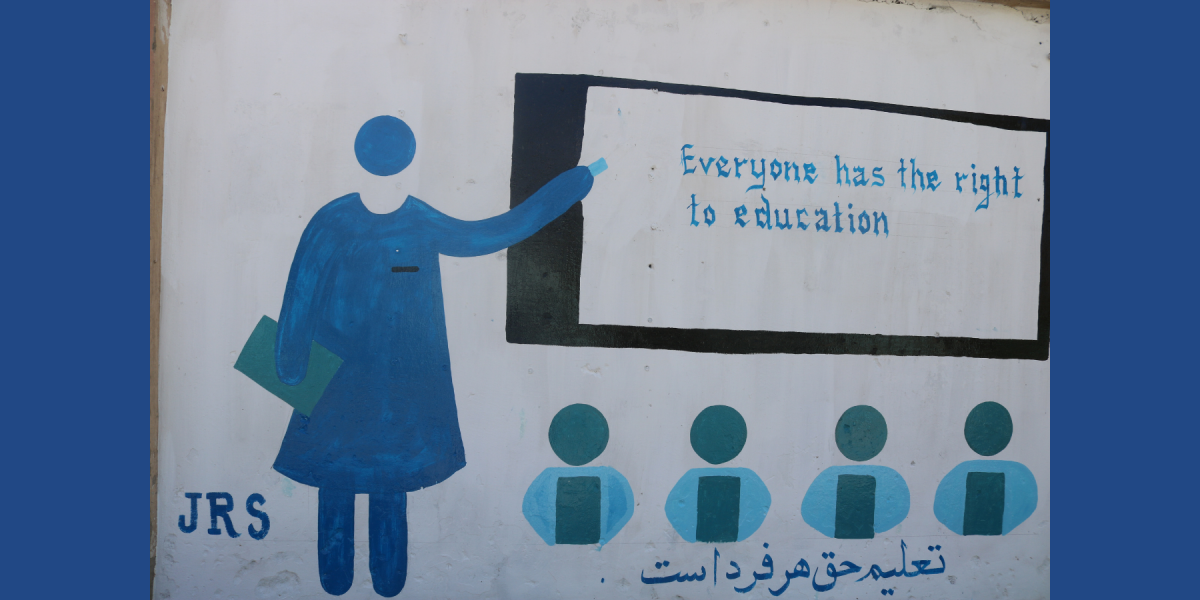Global Action Week for Education: Women’s Education in Bamiyan
27 April 2022

This week is Global Action in Education Week. While we will be taking most of the week to tell stories of refugees whose post-secondary education secured their ability to work, earn a living, and be self-reliant, we also want to tell the story of refugees whose attempts to secure post-secondary education has caused them to become refugees.
Mina Mushtaq, a participant in JRS/USA’s Advocacy Day, is now a student at Arizona State University. When the Taliban returned to power in August 2021, Mina was evacuated from Bamiyan, Afghanistan and arrived in the U.S. Her family is still there. Mina sat down with JRS/USA to tell the story of the women of Bamiyan fighting for their right to attend school.
For almost twenty years, Bamiyan was a safe province in Afghanistan and its citizens were strong supporters of democracy. It is about three hours away from the capital, Kabul.
As long as Mina could remember, women were free to participate in most aspects of society in her province. “Women could drive, play sports, play music, be in films, and go to university,” she said. They even held capital in the city, hosting a small market where women entrepreneurs sold goods to everyone, regardless of their gender.
In November 2020, an explosion sounded in Bamiyan – one that Mina said meant the Taliban was beginning to take back power. After the explosion, the province started experiencing increasing attacks on its borders. Then Kabul fell in August 2021 and the Taliban fully reinstated.
Women are no longer able to be a part of the local economy. Girls and young women have also been banned from attending secondary school since the Taliban returned to power.
Despite the removal of their rights, the women of Bamiyan have not stopped pursuing access to education. One night this past March, Taliban officials invited a group of women to attend a town hall-like meeting to discuss girls and young women attending school beyond sixth grade.
Only when the women arrived, they realized that was not the true purpose of the meeting at all. Mina explained that banners littered the hall stating how women were expected to support the Taliban regime. The women gathered began raising their voices, protesting what they were being told.
One woman stepped onto the stage and spoke directly to a Taliban official at the gathering, asking him to immediately open schools and universities to the women of Bamiyan. “They spoke as representatives of other women [in the province],” Mina said. A few women tore down the banners that expressed female support of the Taliban.
In the days following this March night, news spread over local outlets and social media about what transpired during the meeting. People of their community went to Taliban officials to ask them not to arrest the women who spoke up in protest of the education ban.
The Taliban refused and detained eleven women, accusing them of disrupting their program. Three women, those who tore down the banner, have been released but the fate of the other eight is unknown. Human Rights Watch has expressed urgency and concern regarding the wellbeing of these women.
Mina explained how the women of her province have since resorted to secret schooling and study groups to continue their education while the Taliban is in power.
JRS/USA recognizes education as vital to protect and support the development of good academic skills, social and emotional well-being, and positive values. We must not forget about the courageous women of Bamiyan as they fight to restore their rights to education, work, and equality.
Like Mina, we also recognize how vital it is for those of us who have access to post-secondary education to actively advocate for those who – like her sister and her sister’s friends – not only do not have access to education but put their lives on the line while trying to advocate for themselves.



